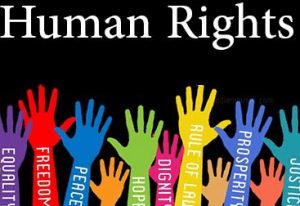Mandatory human rights assessment, due diligence for corporate entities in Ghana coming
 A National Action Plan (NAP) on Business and Human Rights (BHR) for the country is in the offing to bring the business environment at par with international best practices in corporate responsibility on human rights.
A National Action Plan (NAP) on Business and Human Rights (BHR) for the country is in the offing to bring the business environment at par with international best practices in corporate responsibility on human rights.
The United Nation’s Human Rights Council has been advancing the adoption of the national action plans developed upon a framework developed by the Working Group on Business and Human Rights.
Ghana seeks to become the third country in Africa to produce a NAP, and, under the auspices of the offices of the Attorney General’s (AG) Department and the Commission on Human Rights and Administrative Justice (CHRAJ), an 18-member committee, was inaugurated following the completion of a baseline assessment in 2021.
The Committee is to design a five-year (2023-2028) strategy under the NAB that would help produce interventions to improve the business and human rights environment.
Key among proposals for the NAB, in a draft that is seeking input from stakeholders from across the country, is a mandatory human rights impact assessment for corporate entities.
Mr Victor Brobbey, Lead anchor for the drafting of the action plan, said at the consultative workshop for the Volta Region in Ho, that the assessment would cover labour and environmental impacts, and address the rights of women and marginalised groups.
Corporate and business entities would also be subjected to mandatory human rights due diligence, which the lead anchor said a checklist would be produced to guide the assessment.
He said the NAP would introduce a human rights rating process, which would require the AG to “publicly access and score companies on their human rights records.”
Mr Brobbey said the rating process was expected to affect the adoption of the action plan and would be expected to enhance the outlook of state-owned enterprises.
“The idea is to incentivise corporate behaviour by Ghanaian actors. The rating process is expected to have an impact after it has been rolled out. We don’t want it (NAB) to be just a policy. We would want the composition of a permanent inter-agency structure.
“The rating score would ensure consistency compliance with the NAP when developed. It would ensure the policy would affect State owned Enterprise as an important element of the economic and employment base,” he said.
The rights compliance would extend to the trade and investment sector where current agreements would be reviewed, and a language template would be developed and applied to all agreements.
Mr Brobbey said, “it would ensure concerns over rights are not circumvented, and it would affect investor confidence. It will bring the nation in line with the rules of other jurisdictions, and it would help protect against countries that don’t care much about rights”.
The BHR would affect key areas, including State financed investments and procurement, and the general outlook of the formal and informal business landscape.
“We expect Ghanaian companies to have human rights policies – a comprehensive rights policy. Associations of the informal sector must adopt human rights policies.”
Mr Brobbey said the baseline study for the policy confirmed that the nation had a “broad framework of rights” as well as a gap in implementation and enforcement.
“Our legal framework is strong. It covers a broad range of issues. Our constitution has a bill of rights – you see rights language in there, and it has an enforcement mechanism. It has basic rules, and strong laws on nature etc.
“But a broad range of gaps were identified – how local communities were treated in large scale investments, and the enforcement of labor relations. There are also gaps in occupational safety and health. There are gaps with vulnerable groups-children, Persons with Disabilities.
“Rights enforcement in Ghana is a challenge. Despite the numerous courts and efforts at attitudinal change, there are still social impediments to asserting rights, particularly against a large well-resourced corporation. There is an enforcement framework but there are challenges with it,” he stated.
The lead anchor noted that the baseline study was being considered a template for the improvement of the Policy, and that the AG had inaugurated the Committee on the day of the baseline’s launch, tasking it to deliver in the shortest possible time.
The NAP is built on a three-pillar structure of the UNHRC and runs along a 31 principle that Mr Brobbey said had become a “near-universal” framework for governments looking to develop the policy.
The stakeholder consultation brought together the private sector, civil society groups and academia on a series of brainstorming activities to help enhance the Policy, and players of the players of the informal sector were also engaged with.
Madam Sylvia Adusu, a Chief State Attorney, who chairs the Committee, said the nation recently played host to the maiden African Business and Human Rights forum, and that stakeholders considers the production of a quality NAP an honour to the late Kofi Annan, then UN Secretary General, who championed the action plan.
Source: GNA
